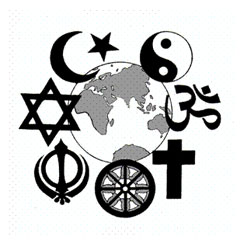Safeguard liberty
By Catholic Register Editorial The right to religious freedom is the first of human rights. With those unequivocal words, delivered to diplomats from around the world, Pope Benedict XVI proclaimed a cause that has become fundamental to his papacy. Religious freedom is being battered in many parts of the world and, with few leaders speaking out, Benedict has become the staunchest voice in the denunciation of religious persecution and intolerance.
The right to religious freedom is the first of human rights. With those unequivocal words, delivered to diplomats from around the world, Pope Benedict XVI proclaimed a cause that has become fundamental to his papacy. Religious freedom is being battered in many parts of the world and, with few leaders speaking out, Benedict has become the staunchest voice in the denunciation of religious persecution and intolerance. All people of religion should applaud him.
The theme of religious liberty has appeared often recently in Benedict’s public comments, but perhaps never as forcefully as Jan. 10 during the Pope’s annual address to the Vatican diplomatic corps. The Holy See maintains diplomatic relations with 178 nations, as well as the European Union and observer status with the United Nations. Addressing the diplomatic corps at the start of each year, the Pope outlines the Vatican’s position on an important international issue, anything from peace to the environment to world trade.
By focussing this year on religious freedom, the Pope signalled boldly to world governments that the Vatican holds this issue atop its international agenda. That message had been conveyed in previous papal pronouncements but it’s one thing to address the Christian world — preaching to the converted — and quite another to challenge world governments to do more, much more, than just talk about safeguarding religious freedom and halting attacks that usually target Christians.
Benedict cited recent examples in Iraq, Egypt, Nigeria and China where Christians were murdered or persecuted for their faith. But his most direct comments were aimed at Pakistan, where Punjab governor Salman Taseer was assassinated Jan. 4 because he had supported a woman sentenced to death for violating the country’s blasphemy laws. Benedict urged Pakistan to rescind its arbitrary blasphemy law, which makes it a capital crime to defame Islam, because false allegations have become a weapon to attack religious minorities.
The Pope also had stern words for Western democracies that endorse free religious worship but pose “other kinds of threats to the full exercise of religious freedom.” He warned that Western society is marginalizing religion and, in a word of caution to the diplomats, cautioned them against restricting public expressions of faith in the name of advancing pluralism and tolerance. Specifically, he cited laws that force Christians to choose between their religious conviction and the law on matters of conscience (such as health care), laws that restrict Catholic education and laws that curtail religious feasts or ban religious symbols from public life.
Benedict is to be commended for his firm stand with the international community. Compared to other human rights violations, religious persecution and discrimination often get short shrift from world leaders. But the often-violent, anti-Christian tide in many places is genuine. Governments need to understand that and then work to reverse it.
Please support The Catholic Register
Unlike many media companies, The Catholic Register has never charged readers for access to the news and information on our website. We want to keep our award-winning journalism as widely available as possible. But we need your help.
For more than 125 years, The Register has been a trusted source of faith-based journalism. By making even a small donation you help ensure our future as an important voice in the Catholic Church. If you support the mission of Catholic journalism, please donate today. Thank you.
DONATE
